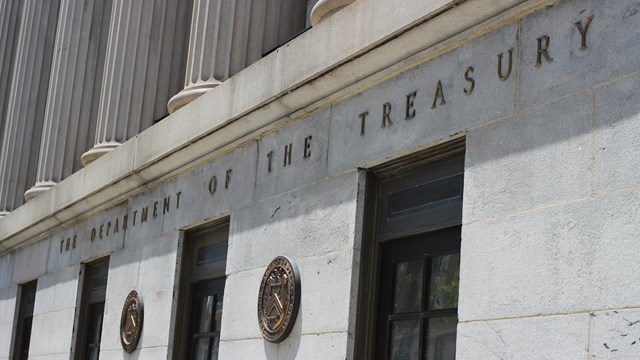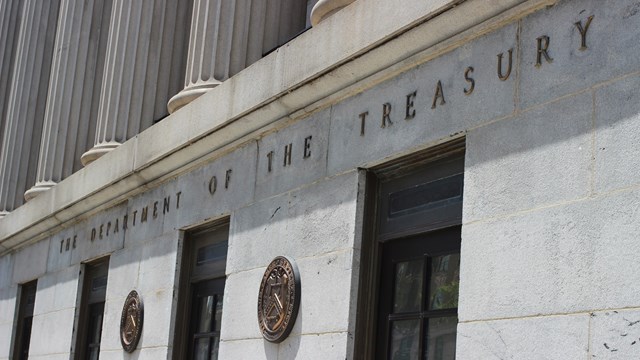According to the Foundation for Community Association Research’s Community Association Fact Book 2023, 30% of the U.S. population currently resides in a condominium community, housing cooperative, or homeowners association, with numbers of such residents rising steadily since 1970, the first year that these statistics were obtained. It stands to reason, then, that what happens in community associations affects laws throughout the country—and that legislative decisions both local and national can have far-reaching consequences for community associations. Here are a few from this year that have implications for our markets.
HOA Laws on the Docket in Illinois
According to attorney Kristofer D. Kasten, principal and founding member of Bartzen Rosenlund Kasten LLC, a Chicago-based boutique law firm focusing on the representation of Illinois community associations, “more than 15 bills were introduced during the current legislative session that began in January 2024 impacting community associations to varying degrees.”
Some of those bills, he says, are already on track to being dead—or without the necessary support to proceed further in this legislative session. Others appear to be on their way to being sent to the Governor, but since the legislature is still in session, their fate is still unclear. Here are some highlights:
SB2740 Accessible Parking: amends the Illinois Condominium Property Act by adding a new section imposing requirements on a condominium association for ensuring that accessible parking is available to a person with a disability who requires accessible parking. The bill was amended to ensure that condominium associations have a policy covering the procedure for submitting requests to the association for accessible parking should it become law. It also prohibits developers from creating and selling parking units that are accessible parking spaces, leaving those spaces as part of the common elements so that the association can make them available to those who may need accessible parking. “Presently, SB2740 has passed out of the Senate and is in the House,” says Kasten. “The bill is expected to pass the House and be enacted into law in 2024. The final disposition of the bill should be known by summer.”
HB4125 Property Taxes: amends the Property Tax Code. Most significantly, it eliminates the statute of limitations for obtaining a certificate of error on property owned by a community association when the assessed value of that property is (or should have been) $1. Reducing the assessed value to $1 means that no property taxes are paid on that parcel. “This bill provides relief to any community association that is looking at a hefty property tax bill on property that is used for common purposes but for some reason the assessed value was not reduced to $1 and the statute of limitations for certificates of error has elapsed,” explains Kasten. He expects the bill to become law.
HB4177 Secret Ballots: amends the Common Interest Community Association Act, adding a requirement that associations use secret balloting for all voting if one or more owners request it. “Presently, HB4177 has not passed out of the House by the deadline. It appears that the bill may be dead for this session,” Kasten notes.
HB4620 Caping Budget/Assessment Increases: amends the Illinois Common Interest Community Association Act to essentially cap annual budget increases at 5%. This “would place an arbitrary limit on the board’s ability to raise the money necessary to pay common expenses, which could result in a severe financial hardship on the association,” says Kasten. HB4620 is expected to be a dead bill.
HB220 Reserve Studies: Illinois is expected to join the 13 (and counting) states with reserve study laws for condos, co-ops, and HOAs. This bill, if it passes, will require associations in the state to obtain a reserve study and update that reserve study every five years, says Kasten. “In the wake of the collapse of the condominium building in Surfside, Florida, in 2021,” he explains, “a national conversation was sparked about the structural condition and maintenance of community association buildings. Both legislators and the community association industry across the United States explored ways to ensure that community associations are adequately maintained to avoid catastrophic tragedies.”
Other states that now require reserve studies or reserve funding or both include California, Colorado, Delaware, Florida, Hawaii, Maryland, Nevada, New Jersey, Oregon, Tennessee, Utah, Virginia, and Washington State.
Corporate Transparency, Condo Encumbrance
Also top of mind for many condo, co-op, and HOA communities—crucially because it likely applies to all of them—is the federal Corporate Transparency Act (CTA), whose rigorous reporting requirements go into effect this year. Attorneys and organizations from coast to coast have been advising clients and members that the law—intended to prevent terrorist financing, corruption, tax fraud, and other illicit activity—contains broad language that suggests that cooperative housing corporations and condominium associations will have to comply.
“Although the CTA was likely enacted to target businesses, condos and HOAs qualify as a reporting company since the filing of a document with the Registry of Deeds is required under M.G.L. c. 183A,” says attorney Edmund Allcock, managing partner with law firm Allcock & Marcus based in Braintree, Massachusetts, referring to Massachusetts General Law that governs common-interest communities in the commonwealth. Since “a reporting company is a corporation, a limited liability company, or any other entity created by the filing of a document with a secretary of state or any similar office under the law of the state,” he continues, “we believe that this is where condominium trusts might have a reporting requirement, as they are recorded at the Registry of Deeds and annually update their trustees with a similar recording.”
He goes on to say that companies created before January 1, 2024 must file a disclosure with the U.S. Treasury Department’s Financial Crimes Enforcement Network (FinCEN) by no later than January 1, 2025 that includes the business’s full legal name and any trade name or assumed name (DBA), its address, the jurisdiction in which it was formed or first registered, and its taxpayer or employer identification number. After the initial filing, an update must be filed within 30 days whenever there is a change in the information disclosed. Companies created between January 1, 2024 and January 1, 2025 have 90 days to file their initial report, and the same 30-day deadline for changes. Those created after January 1, 2025 will have 30 calendar days from actual or public notice that their creation or registration is effective to file their initial reports.
What makes this law particularly thorny for co-ops, condos, and HOAs is that this Beneficial Ownership Information (BOI) report—and requisite updates—must include the names of each beneficial owner, their date of birth, residential address, “a unique identifying number” (i.e., passport or driver’s license number), and a copy of the document which includes that number, with the same filing deadlines as above. The CTA defines a “beneficial owner” as someone who owns 25% or more of a reporting company, or someone who “exercises substantial control over the reporting company, such as a president, chief executive officer, chief financial officer, or other important decision maker.” (emphasis added)
According to Allcock, “The definition of beneficial owner [therefore] requires the reporting information for the trustees or the board of directors of the condominium, HOA, or co-op. Condominiums will need to consider reporting information for the declarant or developer if it continues to assert control over the condominium, and possibly information if an owner owns more than 25% of the beneficial interest.”
Notably, the filing would need to be updated within 30 days every time there is a change in board membership or office holding—which happens at least annually for most associations and corporations—not to mention changes to any of the other BOI, such as the name or address of a reporting owner. Consequently, “Condominiums, HOAs, and even some corporations need someone to shepherd the CTA/BOI filing to completion,” advises Allcock. “If only four out of five board members make their filing, then the condominium association is noncompliant.”
Allcock adds that these filings require handling of sensitive personal information, and that penalties for noncompliance can be $500 per day, up to $10,000, or even up to two years of imprisonment; not something that volunteer homeowners making decisions for their communities and their management companies should take lightly, nor something that the vast majority of industry players believe should even apply to them. To that end, there is a broad effort by organizations like the Community Associations Institute (CAI) to either exempt community associations from the Act and its reporting requirements, delay its implementation (for which there is proposed legislation in the House and Senate—H.R. 4035/S. 2623 and H.R. 5119), or, at the very least, create rules that promote confidentiality of the reporting information. CooperatorNews will be on top of these efforts as they progress.
Environmental Regulations
New York, and particularly New York City, have been at the forefront of laws targeting buildings’ contribution to our planet’s carbon emissions problem, and how to reduce those emissions. Part of the sweeping Climate Mobilization Act of 2019, Local Law 97 (LL97) is practically a household name in the city’s multifamily circles—along with widespread efforts to delay or minimize the financial impacts of both compliance and noncompliance, especially for communities made up of predominantly lower- or middle-income owners.
One such effort is resolution 0277-2024, which calls on the State Legislature to pass A.5050/S.943-A—a bill that would establish a real estate tax abatement to help offset the cost of capital projects that reduce carbon emissions, and bring buildings into compliance with LL97. According to the Council of New York Cooperatives & Condominiums (CNYC), the amount of the abatement would depend on the percentage that the project decreases carbon emissions.
“There is no doubt tax abatements would increase the affordability of LL97 compliance for many co-ops and condos,” says the organization in a press release. “CNYC seeks your help to ensure that all cooperatives and condominiums that have to comply with LL97 are eligible for this abatement program. Particularly if your building’s assessed value exceeds $45,000 per unit, we highly recommend you ask your City Councilperson not only to co-sponsor 0277-2024, but to ensure that all co-ops and condos that are required to comply with LL97 remain eligible.”
Whether or not there are laws on the books in a particular jurisdiction mandating energy retrofits, carbon offsets, inspections and benchmarking, or other capital expenses related to buildings’ significant impact on climate and environment, affording the costs associated with such projects is of huge concern for multifamily buildings and communities who want to not only comply, but to do the right thing for our shared planet. The upcoming presidential election in November could determine the fate of much of the funding, tax incentivization, and acceleration and affordability of clean energy sources available to communities as they take on these crucial—but costly—endeavors.
Darcey Gerstein is Associate Editor and a Staff Writer for CooperatorNews.







Leave a Comment